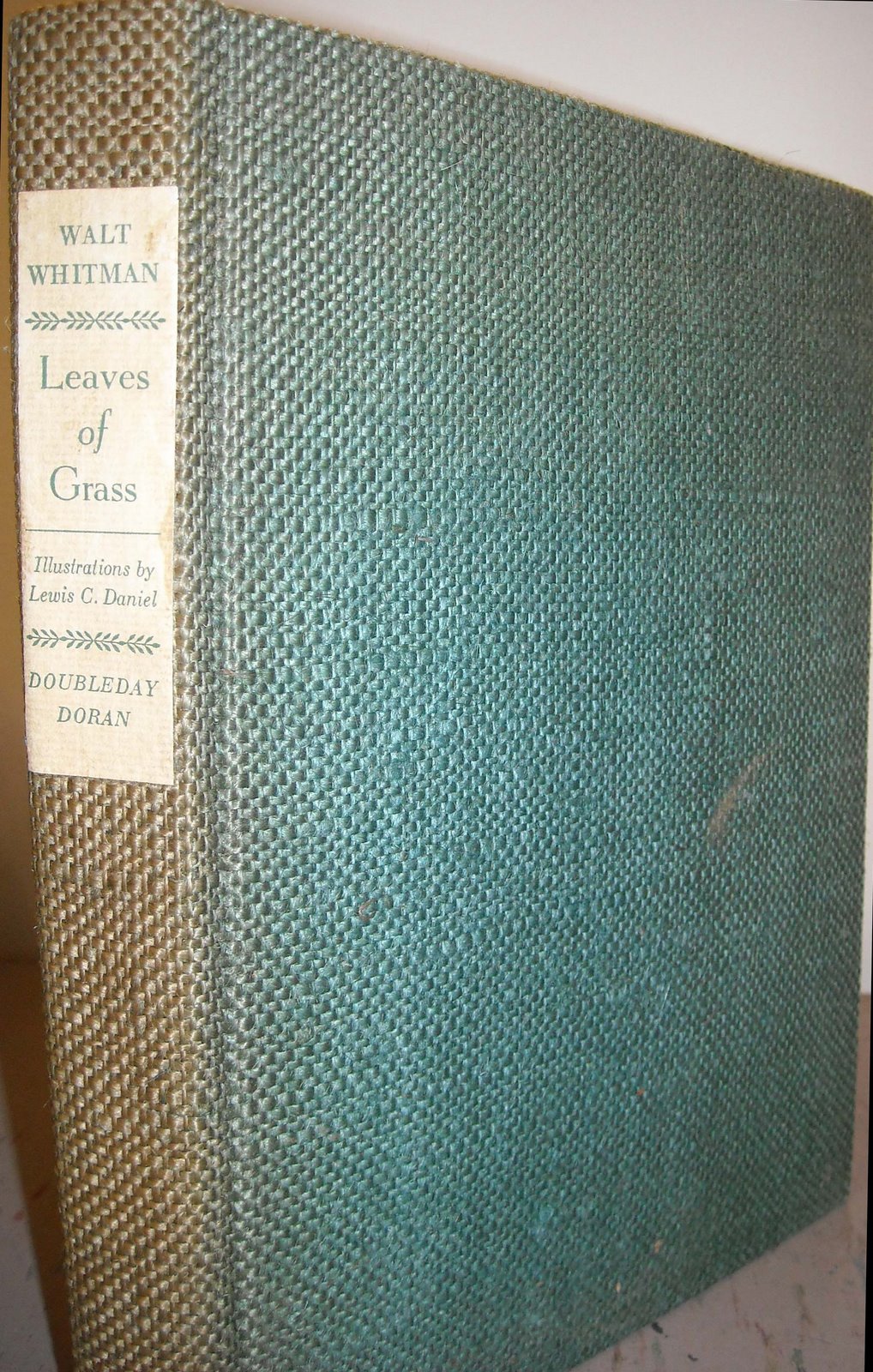Other Writings and Publications
"Leaves of Grass," though his best-known work, was not the only form in which Whitman published his poems—nor were the poems, however famous, the only thing he wrote.
Arranged here is a selection of other editions of his work, including rare early printings of "Drum-Taps, "Two Rivulets" and "November Boughs."
Walt Whitman Diffracted: His Work as Published by Other Hands

 Whitman’s temperance novel Franklin Evans was written and published while he was working at Park Benjamin’s printing house in New York. He came to regret having written it later in life, calling it “damned rot” and claiming (perhaps in jest) to his friend Horace Traubel that he actually wrote the novel under the influence of alcohol. As critic William Lyon Phelps pointed out in 1924, “it sounds like a burlesque on a temperance tract.”
Whitman’s temperance novel Franklin Evans was written and published while he was working at Park Benjamin’s printing house in New York. He came to regret having written it later in life, calling it “damned rot” and claiming (perhaps in jest) to his friend Horace Traubel that he actually wrote the novel under the influence of alcohol. As critic William Lyon Phelps pointed out in 1924, “it sounds like a burlesque on a temperance tract.”
It was not one of those works to which Whitman tirelessly worked to attract attention; much to his later chagrin, he did not have to, as the novel proved to be one of his life-long bestsellers.
Publications in Periodicals
Many of Whitman’s publications in periodicals, beginning with “Fame’s Vanity” in an October 1839 issue of the Long Island Democrat, are extremely difficult to find. The early publications in particular served as the “long foreground” at which Emerson guessed in his famous letter praising the first edition of "Leaves of Grass;" we can see Whitman honing his talent in these pieces over the 16 years leading up to the first publication of his book. Arranged here is a selection from examples that Brandeis has acquired—our collection includes some very early work in the Democratic Review, Century Illustrated Monthly, Harper’s New Monthly Magazine and The Galaxy. There are also a few items from later in Whitman’s career.
Letters
Whitman’s correspondence is voluminous and scattered among the archival repositories of many institutions and private collections, and it has always attracted considerable if at times desultory attention. Some limited selections from his letters to various individuals were published even during his lifetime for their particular interest, including those he wrote to his mother, to Anne Gilchrist (biographer of William Blake and ardent devotee of Whitman’s), to Peter Doyle (the man with whom it seems he had one of his most extended and developed intimate relationships), and various others.
 One rare item in the collection is this autograph note, addressed to E. M. Abdy Williams, dated January 7th, 1883. This individual is probably Ellen Mary Abdy Williams, also known as Mrs. Bernhard Whishaw, subsequently the author of three Victorian novels ("Two Ifs: A Novel"; "For His Friend"; and "World Below: A Novel"; these were put out in London by Sonnenschein Press in 1884, 1885 and 1887, respectively). Williams lived from 1857 to 1937. Nothing further is known about her correspondence with Whitman.
One rare item in the collection is this autograph note, addressed to E. M. Abdy Williams, dated January 7th, 1883. This individual is probably Ellen Mary Abdy Williams, also known as Mrs. Bernhard Whishaw, subsequently the author of three Victorian novels ("Two Ifs: A Novel"; "For His Friend"; and "World Below: A Novel"; these were put out in London by Sonnenschein Press in 1884, 1885 and 1887, respectively). Williams lived from 1857 to 1937. Nothing further is known about her correspondence with Whitman.
International Editions
During Whitman's lifetime, his work was already being brought out in translation and in foreign editions. Arranged here is a selection from before and after his death; the collection also includes some examples of publicity in foreign-language periodicals.




























